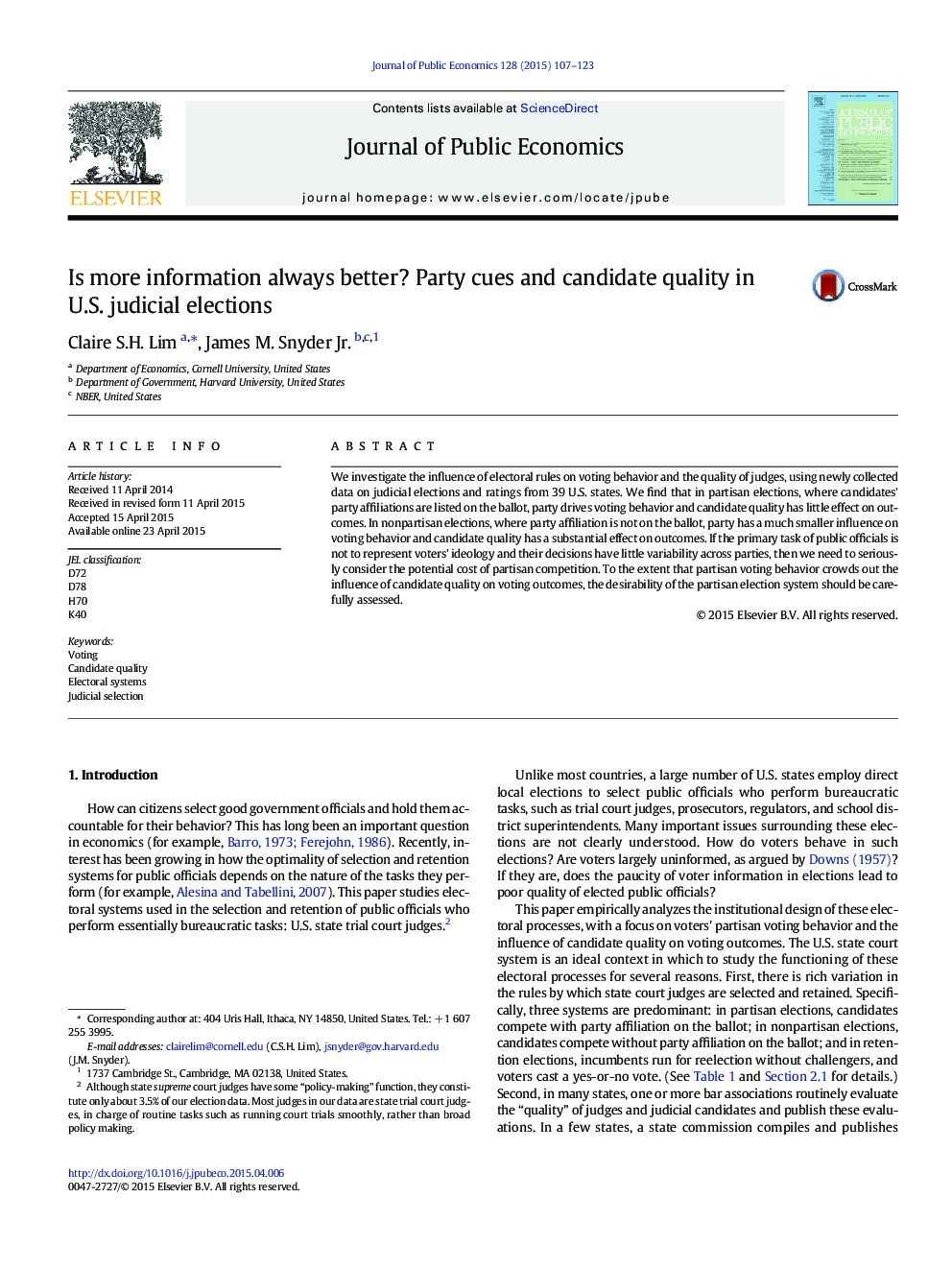| Article ID | Journal | Published Year | Pages | File Type |
|---|---|---|---|---|
| 969656 | Journal of Public Economics | 2015 | 17 Pages |
•In partisan elections, party drives voting and candidate quality has little effect on outcomes.•In nonpartisan elections, party does not significantly influence voting and candidate quality has a large effect on outcomes.•In retention elections, voting is not partisan and is only moderately affected by candidate quality.•Turnout rate is sensitive to newspaper coverage of courts only in nonpartisan elections.•Partisan voting behavior is not explained by differences in court decisions between political parties.
We investigate the influence of electoral rules on voting behavior and the quality of judges, using newly collected data on judicial elections and ratings from 39 U.S. states. We find that in partisan elections, where candidates' party affiliations are listed on the ballot, party drives voting behavior and candidate quality has little effect on outcomes. In nonpartisan elections, where party affiliation is not on the ballot, party has a much smaller influence on voting behavior and candidate quality has a substantial effect on outcomes. If the primary task of public officials is not to represent voters' ideology and their decisions have little variability across parties, then we need to seriously consider the potential cost of partisan competition. To the extent that partisan voting behavior crowds out the influence of candidate quality on voting outcomes, the desirability of the partisan election system should be carefully assessed.
